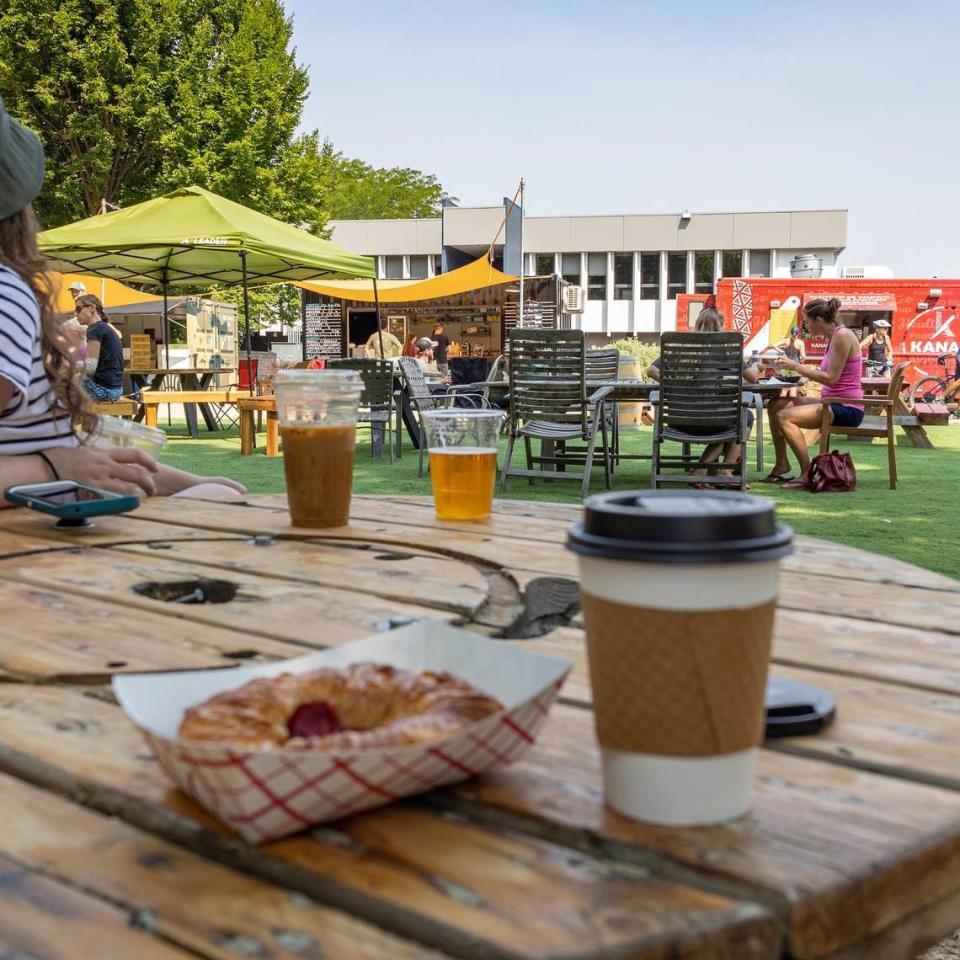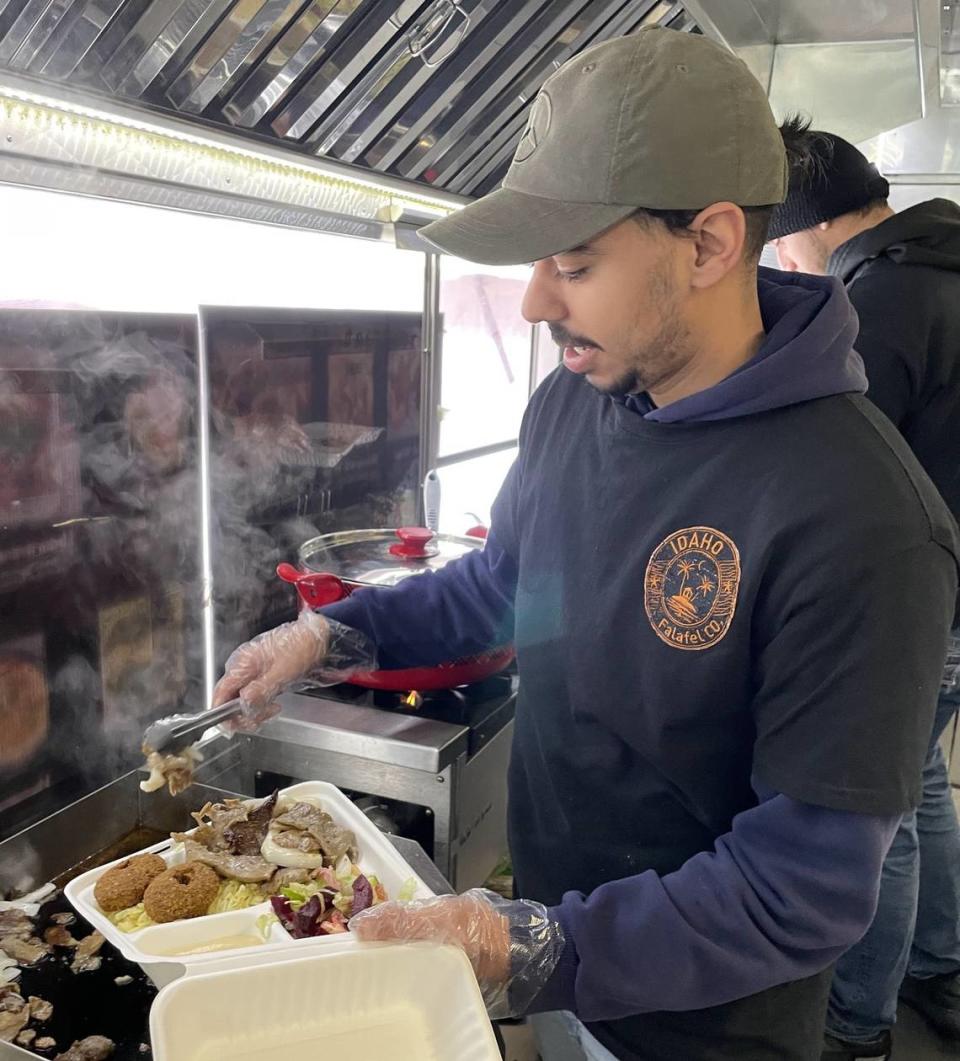Like to chow down at food trucks? Boise is setting a table for more. Here’s what to know
Grabbing a birria taco at La Garnacha Que Apapacha, or an ice cream cone at the Green Acres Food Truck Park down by the river – these are quintessential Boise activities, markers of a summer evening well spent.
But for some of the dealers of these meals on wheels, outdated city regulations are causing a headache.
Still, there’s reason for them to keep on trucking.
On Feb. 27, the City Council heard a proposal to streamline the process for food trucks and other “mobile food vendors” to get licensed and out on the road. Andrea Cantor, an economic development adviser in the mayor’s office, pitched council members on the idea of reducing the number of licenses needed and redefining mobile food vendors to treat them like brick-and-mortar restaurants.
She framed the initiative in terms of its benefits for small-business owners, who are increasingly starting out in food trucks because of the rising prices of Boise-area real estate.
“It’s hard to find retail space at the price you need with the kind of style and vibe that you’re looking for,” Cantor told the Idaho Statesman by phone. “An easy option is to test out your business model with a food-truck concept, and if that goes well and you build your clientele, then you look for that next step” with a brick-and-mortar restaurant.

The proposal will require an update to city code and will likely take effect as vendors renew their licenses in early 2025. Council members responded enthusiastically to the proposal at the meeting.
“Simple is always better … I think especially for these food trucks, because a lot of these are younger, entrepreneur folks who may not have the ability to get a brick-and-mortar going,” Council Member Jimmy Hallyburton said at the meeting. “Maybe they have a refugee background, and they’re trying to figure out how to navigate all these different processes.”

Under the current system, food-truck operators must get multiple licenses, including one for the truck itself and separate licenses for each vendor who works in it. Some elements of this process duplicate other requirements, like getting clearance from the Central District Health Department.
“I think this is an example of where new ways of doing business and starting a business didn’t mesh up with old code,” Mayor Lauren McLean said at the meeting. “The goal here is to reflect the importance of startups – there are more and more of them now, and we want them – and to maintain our standards.”
The proposed changes would also affect farmers markets, many of whose vendors are farmers coming from outside the city, said Amber Beierle, the executive director of the Boise Farmers Market.
Last spring, as area farmers markets prepared to open, she raised concerns to the city about licensing requirements for vendors. The city was receptive, she said, looking into the issue to ensure they were “creating a path to ‘yes’” for new and existing vendors.
“It was just really being meaningful, being purposeful with what the intent of the code was,” Beierle said. “It tightens up all these different agencies, because these are small businesses … in the end, our goal is to make it as safe as possible and as accessible as possible to folks, and in the end, just to help small businesses grow.”
Eating at food trucks is a popular way to dine out for breakfast, lunch, dinner or a snack. Cantor said she’s observed an increase in food trucks over the last five or six years – “you can visually see that there are more” around the city and at private events – though she did not have precise figures.
In the coming months, Cantor said her office aims to clarify the requirements for food-truck licensing on the city’s website and to conduct outreach with vendors about the changes. She said she anticipates that the new requirements will allow more food trucks to start up.
“I think we hope to see more food trucks … we’ve heard from business owners, like, ‘the easier the better,’ especially when you’re thinking about investing in a business,” she told the Statesman. “We hope that people who come to the city with interest will see this as an option with a clear path to getting open without a ton of red tape bringing them down.”
Boise’s first food truck park moved to a permanent location last year. Now it’s closing
Proposed Boise-area shopping center stalls, but hope for 6 restaurants stays alive
‘Malicious, arbitrary:’ Owner of historic downtown building steps up fight with Boise
Boise’s ‘rustic’ new $100M hotel: Steakhouse. Rooftop bar. Or soak in a copper bathtub

